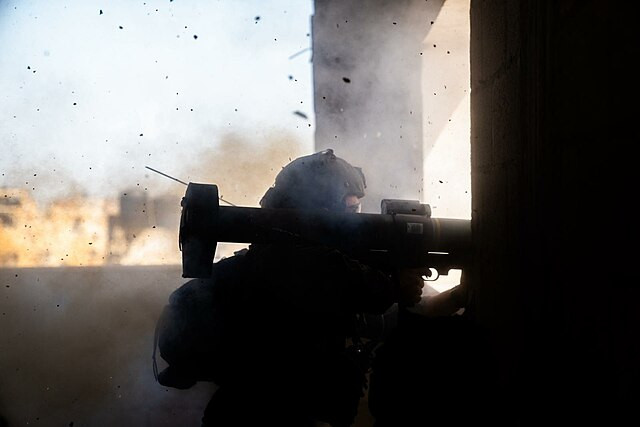In one of the deadliest incidents since the onset of the war between Israel and Hamas, an Israeli airstrike on a Gaza school turned shelter has resulted in the deaths of at least 80 people, according to Palestinian health authorities. The attack, which targeted the Tabeen school in central Gaza City early Saturday morning, has drawn widespread condemnation and highlighted the devastating toll the conflict continues to take on civilians.
The Israeli military acknowledged responsibility for the strike but justified the attack by claiming that the school was being used as a command center by Hamas. "The compound, and the mosque that was struck within it, served as an active Hamas and Islamic Jihad military facility," stated Lieutenant Colonel Nadav Shoshani, an Israeli military spokesperson, in a post on X (formerly Twitter). Shoshani further questioned the casualty numbers reported by Palestinian authorities, suggesting that the figures might be inflated.
However, Hamas has categorically denied that militants were operating from within the school. Izzat al-Rishq, a senior Hamas official, labeled the strike a "horrific crime" and a severe escalation in the ongoing conflict, insisting that the dead did not include any combatants.
The Tabeen school, which had been repurposed as a shelter for around 6,000 displaced people, was hit by three missiles in the early hours, just before sunrise. According to witnesses, the strike occurred as people were praying in a mosque located within the school compound. Video footage from the scene shows extensive damage, with walls blown out, debris strewn across the ground, and bodies lying amidst the rubble.
Fadel Naeem, director of the al-Ahli hospital in Gaza City, reported that his facility had received 70 bodies and the remains of at least 10 more victims. Many of the injured, he said, were in critical condition, with severe burns and amputations being common among the casualties. "We received some of the most serious injuries we encountered during the war," Naeem told reporters, underscoring the severity of the strike.
This incident is part of a broader pattern of increasing attacks on schools in Gaza, many of which have been serving as shelters for people displaced by the conflict. A recent report by the U.N. Human Rights Office noted that at least 17 schools had been targeted in the past month alone, resulting in the deaths of 163 people, many of them women and children. The report emphasized that Israel has a duty under international law to ensure the safety of civilians, including those taking refuge in schools.
International reactions to the strike have been swift and critical. EU foreign policy chief Josep Borrell condemned the attack, stating, "There's no justification for these massacres." Similarly, Egypt, which has been acting as a key mediator in the conflict, denounced the strike as evidence that Israel has no intention of pursuing a ceasefire. Qatar and Jordan have also condemned the attack, with Qatar demanding an international investigation and calling it a "heinous crime" against civilians.
The airstrike comes amid renewed efforts by American, Qatari, and Egyptian mediators to broker a ceasefire between the warring parties. However, the strike on the Tabeen school has cast a shadow over these efforts, with many questioning Israel's commitment to ending the conflict. Egyptian officials have expressed skepticism about the prospects for a ceasefire, citing the continued high civilian death toll in Gaza as a major obstacle.
In addition to the strike on the Tabeen school, separate airstrikes in central Gaza on Friday killed at least 13 people, including three children and seven women, according to hospital officials. These incidents have further fueled tensions and underscored the escalating violence in the region.
The conflict, which began in October with a Hamas attack on southern Israel that killed approximately 1,200 people, has since claimed the lives of nearly 40,000 Palestinians, according to the Gaza Health Ministry. The overwhelming majority of these casualties have been civilians, according to health officials, though Israel maintains that a significant portion of the dead are combatants.
As the war drags on, the humanitarian crisis in Gaza continues to worsen. More than 1.9 million of Gaza's prewar population of 2.3 million have been displaced, many of them repeatedly, as they flee the relentless bombardment. The situation has become increasingly desperate, with most of the displaced now crowded into makeshift camps in a small coastal area that remains under heavy Israeli fire.




